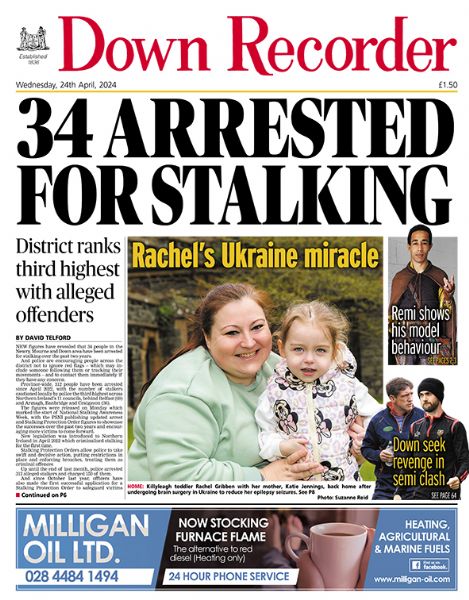Life changing facility urges politicians to fight cutbacks
Life changing facility urges politicians to fight cutbacks
11 October 2017
POLITICIANS have been asked to back a supported housing facility in Downpatrick which has had its funding cut by the Housing Executive.
Mulholland After Care Services (MACS) supports vulnerable children and young people at its English Street base and many of those who have used the service have credited the organisation with turning their lives around.
MACS provides accommodation for young people who have left the care system, providing them with support to learn the skills they require to move to more permanent accommodation in the future.
Earlier this year, the Housing Executive reduced the funding its provides to a number of supported housing projects, including MACS, by five per cent, prompting warnings that the move, in tandem with increasing costs, will impact on the long-term quality and viability of many services.
Last Friday morning, a special event was held at the organisation’s base in Downpatrick to appeal to politicians to lobby for the funding to be reinstated amid warnings that reduced finances will result in a “profound and expensive long-term legacy.”
The Executive administers the Department for Communities Supporting People Programme which provides financial support to MACS and a number of other organisations. In recent weeks, the government department provided the Executive with a one-off payment of £2.6m for the programme, but there is concern that the money may not be allocated to all the supported housing providers affected by the five per cent cut.
South Down MLAs Colin McGrath, Jim Wells and Emma Rogan were joined by Downpatrick councillor John Trainor for a tour of the MACS building last Friday and also heard from staff and clients about the positive impact the scheme has locally.
Catherine McNally, who manages the English Street facility, said it is one of over 100 voluntary and community organisations that delivers the Supporting People programme across Northern Ireland.
She said MACS currently supports almost 80 young people in the local area with up to eight resident in English Street.
“We support young people to make the transition from interdependence to their own tenancy. Through so-called floating support, we offer services to young people to address homelessness or risk of homelessness and to enable them to establish and maintain interdependent living in the community,” Catherine continued.
“With our support, we have seen young people go to university, build positive relations with family and friends, believe in themselves and feel less lonely. At present, we are seeing more of our young people returning for further support due to new or continued need, as well as the closure of vital mental health services.”
Appealing directly to politicians for their support last Friday, Catherine added: “We need your help and support to sustain Supporting People programmes like MACS.”
Ricky Rowledge, of the Committee Representing Independent Supporting People Providers, said the £2.6m allocated by the Department for Communities to the Housing Executive is a temporary in-year reinstatement that does not cover the full scale of the budget reduction.
He added: “While any reprieve is welcome, service providers will again be facing a five per cent budget reduction in six months’ time. A decision on how this stoppage funding will be allocated is expected at the end of October, but there is no assurance that funding will be returned to all organisations who have had their budgets reduced. We are urging the Housing Executive to reinstate the funding immediately to all providers.”

